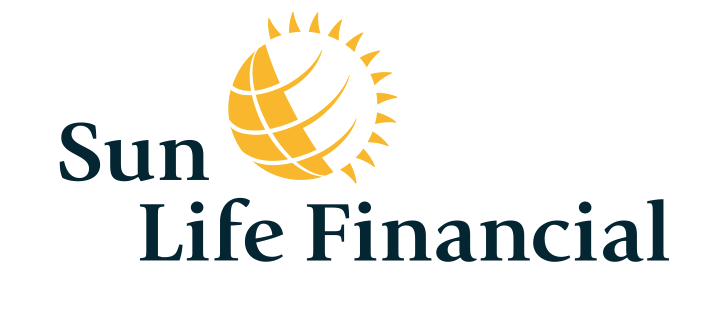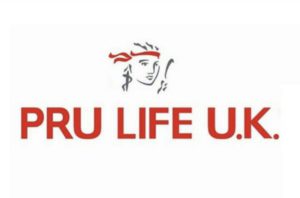Insurance
is a means of protection from financial loss. It is a form of risk management, primarily used to hedge against the risk of a contingent or uncertain loss.
An entity that provides insurance is known as an insurer, insurance company, insurance carrier or underwriter. A person or entity who buys insurance is known as an insured or as a policyholder. The insurance transaction involves the insured assuming a guaranteed and known relatively small loss in the form of payment to the insurer in exchange for the insurer’s promise to compensate the insured in the event of a covered loss.
The loss may or may not be financial, but it must be reducible to financial terms, and usually involves something in which the insured has an insurable interest established by ownership, possession, or pre-existing relationship.
Basic Types of Insurance
Life Insurance
Life Insurance is different from other insurance in the sense that, here, the subject matter of insurance is the life of a human being. The insurer will pay the fixed amount of insurance at the time of death or at the expiry of a certain period. At present, life insurance enjoys maximum scope because life is the most important property of an individual.
Auto Insurance
Also, Know as Vehicle Insurance, is insurance for cars, trucks, motorcycles, and other road vehicles. Its primary use is to provide financial protection against physical damage or bodily injury resulting from traffic collisions and against liability that could also arise from incidents in a vehicle.
Vehicle insurance may additionally offer financial protection against theft of the vehicle, and against damage to the vehicle sustained from events other than traffic collisions, such as keying, weather or natural disasters, and damage sustained by colliding with stationary objects. The specific terms of vehicle insurance vary with legal regulations in each region.
Property Insurance.
Property insurance provides protection against most risks to property, such as fire, theft, and some weather damage. This includes specialized forms of insurance such as fire insurance, flood insurance, earthquake insurance, or home insurance. Property is insured in two main ways—open perils and named perils.
Open perils cover all the causes of loss not specifically excluded in the policy. Common exclusions on open peril policies include damage resulting from earthquakes, floods, nuclear incidents, acts of terrorism, and war. Named perils require the actual cause of loss to be listed in the policy for insurance to be provided. The more common named perils include such damage-causing events as fire, lightning, explosion, and theft.
World Trade Center Claim
Attack on the World Trade Center
Following the September 11 attacks, a jury deliberated insurance payouts for the destruction of the World Trade Center. In May 2007 New York Governor announced more than $4.5 billion would be made available to rebuild the 16-acre (65,000 m2) WTC complex as part of a major insurance claims settlement.
The most common type of Property Insurance is Fire Insurance, the fire insurance does not protect only losses but it provides certain consequential losses also war risk, turmoil, riots, etc. can be insured under this insurance, too.
Health Insurance
Health insurance is an insurance that covers the whole or a part of the risk of a person incurring medical expenses, spreading the risk over numerous persons. By estimating the overall risk of health care and health system expenses over the risk pool, an insurer can develop a routine finance structure, such as a monthly premium or payroll tax, to provide the money to pay for the health care benefits specified in the insurance agreement.
A contract between an insurance provider and an individual or his/her sponsor. The contract can be renewable or lifelong in the case of private insurance or be mandatory for all citizens in the case of national plans. The type and amount of health care costs that will be covered by the health insurance provider are specified in writing, in a member contract or “Evidence of Coverage” booklet for private insurance, or in national health policy for public insurance.
The benefit is administered by a central organization such as a government agency, private business, or not-for-profit entity.
Having health insurance is important for several reasons. Uninsured people receive less medical care and less timely care, they have worse health outcomes, and lack of insurance is a fiscal burden for them and their families. Moreover, the benefits of expanding coverage outweigh the costs for added services
Liability Insurance
Liability insurance (also called third-party insurance) is a part of the general insurance system of risk financing to protect the purchaser from the risks of liabilities imposed by lawsuits and similar claims and protects the insured if the purchaser is sued for claims that come within the coverage of the insurance policy.
Originally, individual companies that faced a common peril formed a group and created a self-help fund out of which to pay compensation should any member incur a loss. The modern system relies on dedicated carriers, usually for-profit, to offer protection against specified perils in consideration of a premium.
Liability insurance is designed to offer specific protection against third-party insurance claims, i.e., payment is not typically made to the insured, but rather to someone suffering loss who is not a party to the insurance contract. In general, damage caused intentionally as well as contractual liability are not covered under liability insurance policies. When a claim is made, the insurance carrier has the duty (and right) to defend the insured.
Top 3 insurance Companies in The Philippines
Sun Life of Canada (Philippines)
It was in 1895, three years before the Republic of the Philippines was officially founded when Sun Life first set foot in the country with the mission of giving Filipinos the opportunity to enjoy the humanitarian benefits of insurance.

Sun Life’s 125th anniversary comes on the heels of another milestone: building a community of 5 million Sun Life clients. And with its financial advisors now over 20,000 strong nationwide. StockBytes PH The owner is a Sun Life Financial Advisor.
- Financial planning and guidance
- Life insurance products for every life stage
- Investment products for individuals, families, and companies
- Health-focused products with an innovative wellness community
- Exceptional client-servicing
Sun Life Financial, Inc. (SLF) is a publicly-traded company domiciled in Canada and is the holding company of Sun Life Assurance Company of Canada. SLF was incorporated in Canada on August 5, 1999. SLF is traded on the Toronto (TSX), New York (NYSE), and the Philippine (PSE) stock exchanges.
Established in 1999, AXA Philippines is one of the largest and fastest-growing insurance companies in the country. It offers financial security to more than 1.5 million individuals through its group and individual life insurance as well as general insurance products through its wholly-owned subsidiary Charter Ping An.
The AXA Group is a worldwide leader in insurance and asset management, with 171,000 employees serving 105 million clients in 61 countries. In 2018, IFRS revenues amounted to Euro 102.9 billion and underlying earnings to Euro 6.2 billion. AXA had Euro 1,424 billion in assets under management as of December 31, 2018.
The AXA ordinary share is listed on compartment A of Euronext Paris under the ticker symbol CS. AXA’s American Depository Share is also quoted on the OTC QX platform under the ticker symbol AXA. The AXA Group is included in the main international SRI indexes, such as Dow Jones Sustainability Index and FTSE4GOOD. It is a founding member of the UN Environment Programme’s Finance Initiative Principles for Sustainable Insurance and a signatory of the UN Principles for Responsible Investment.
AXA Philippines is a joint venture between the AXA Group, headquartered in France, GT Capital Holdings, Inc., a leading conglomerate in the Philippines, and Metropolitan Bank and Trust Company (Metrobank), one of the Philippines’ largest financial institutions. It is duly recognized by the Insurance Commission and has the following licenses to operate: 2019/37-R for AXA and 2019/40-R for Charter Ping An.
GT Capital Holdings, Inc. and Metropolitan Bank and Trust Company are publicly listed and traded in Philippine Stock Exchange (PSE) under the symbols GTCAP and MBT.
Pru Life U.K.
Established in 1996, Pru Life UK is the pioneer of insuravest, or investment-linked life insurance products, in the Philippines and is one of the first life insurance companies approved to distribute US dollar-denominated investment-linked life insurance policies in the country.
After only two years of operations, Pru Life UK was ranked among the top 10 life insurance companies in the Philippines in terms of First-Year Premiums. Pru Life UK acquired ING Life Philippines in 2002.
They offer a wide range of retail financial products and services, and asset management services in Asia, which has a strong presence in the Philippines.
Aside from life insurance products, they also offer health and protection services and have partnered with a long list of banking institutions.
Conclusion
There are dozens other kinds of Insurance, Insurance policies are used to hedge against the risk of financial losses, both big and small, that may result from damage to the insured or her property, or from liability for damage or injury caused to a third party
In order to select the best policy for you or your family, it is important to pay attention to the three critical components of most insurance policies—the deductible, premium, and policy limit. Best to get a Financial Advisor to guide you on getting the best Insurance for you.
Want to learn more about Life Insurance? Follow this Link: Guide to Life Insurance
Ready to start your financial journey? email us at [email protected] or follow our social media account and join our groups, Cheers!






